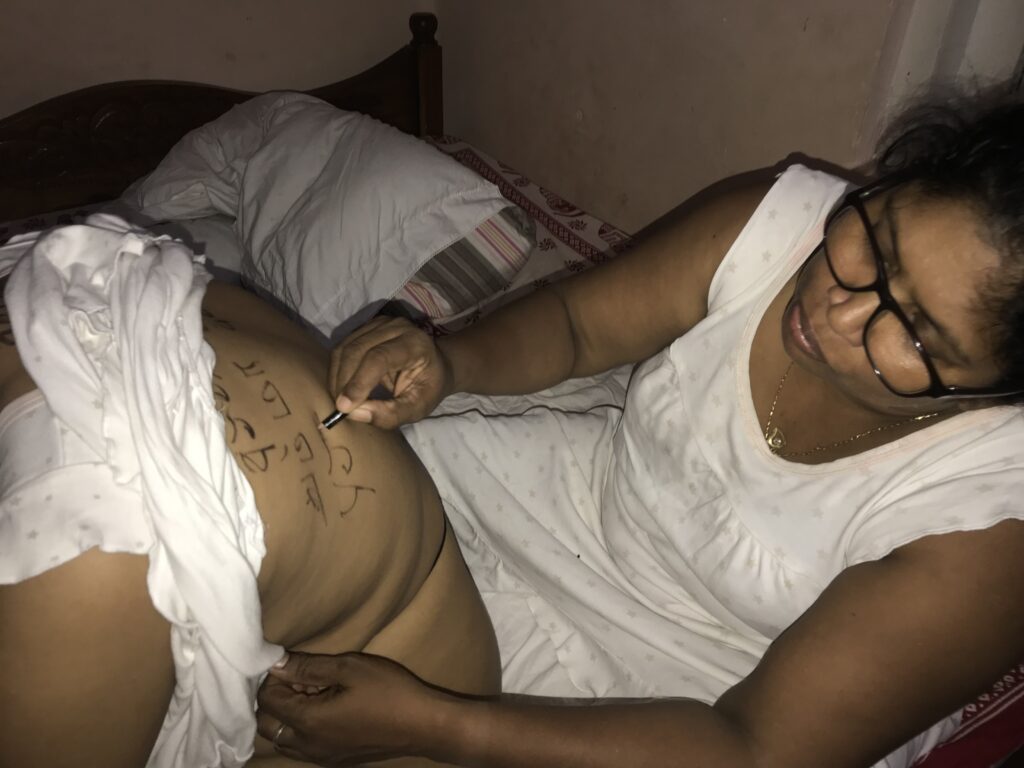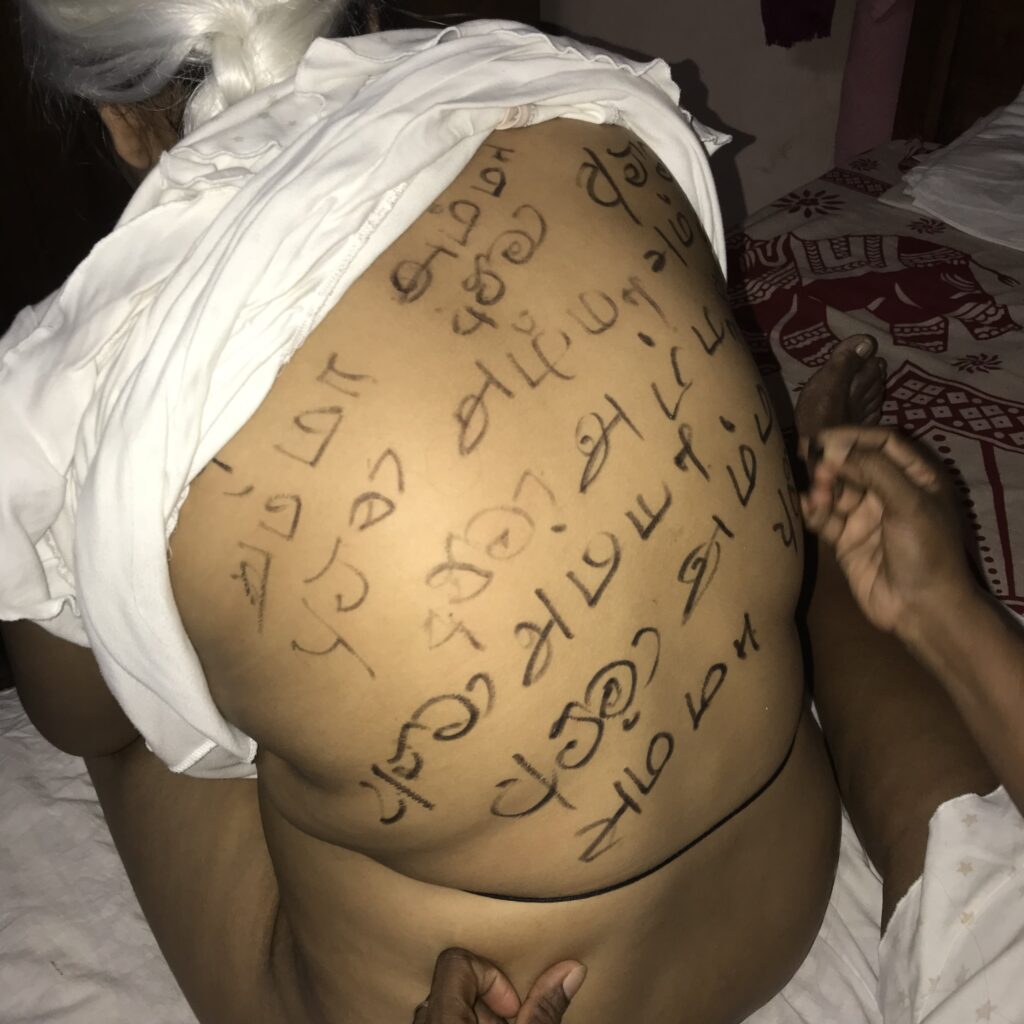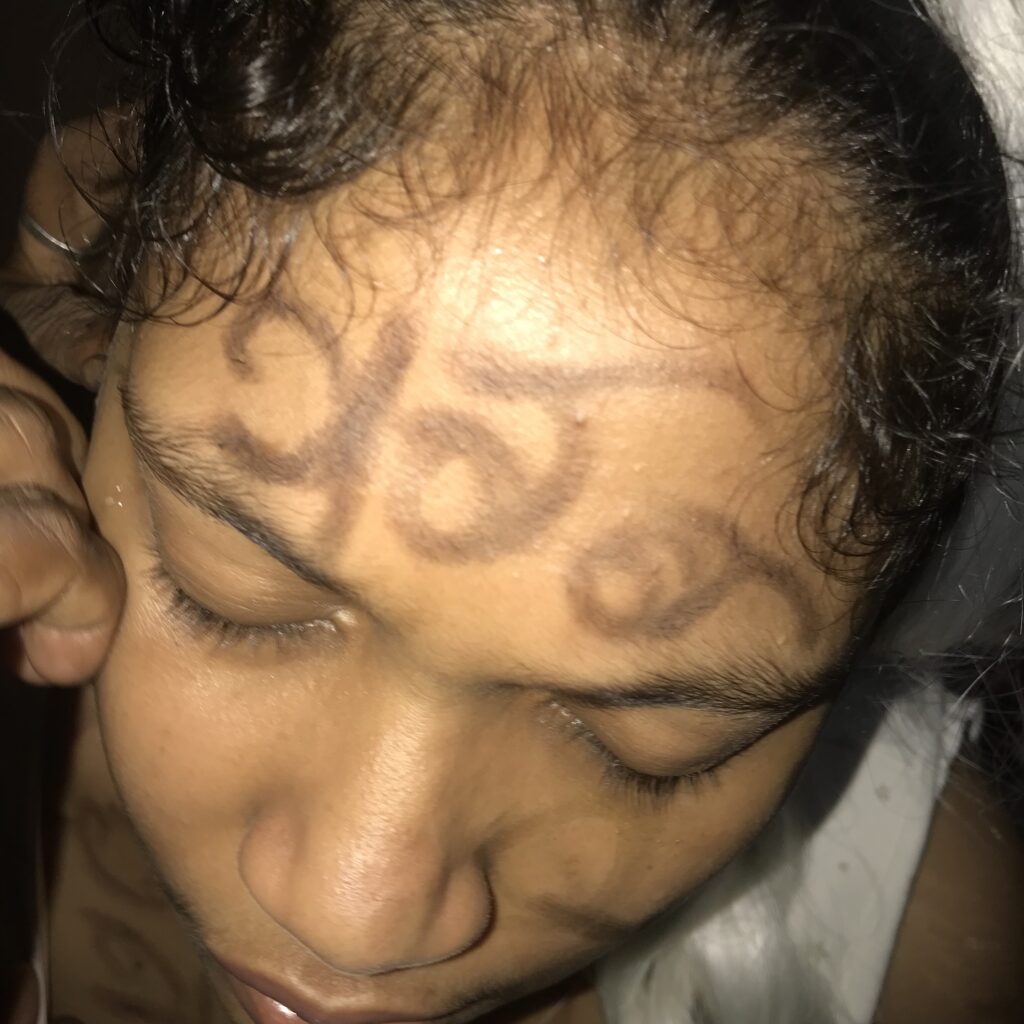The performances within the work consist of negotiating with intertwining of spaces and upon dialogues of the time period. The work begun with the first performance of identity: that layered with the name that comes down with cession. The performances then moved into the domain of reconnecting with intimate space of ‘mother’ and creating dialogues upon the nation, identity, past and the present after the war. The space within the confinement of home,
“what is home? What is mother? Who is the mother?”
Script: Mother writing on the child’s body, term “Mother” in Sinhala and Tamil. Nonchi’s sound, that generates continuously throughout as a movement.
Derrida made his famous remark “there is nothing outside of text“. First comes word and word becomes ultimatum . Sartre emphasis on deconstruction , running into the roots of language formations. In Indian aesthetics language embodies semantics , symbolism to metaphorical connotations.
“first comes word”
When word itself becomes ultimatum , idealism, politicized , authoritarian, withholds diabolical subjectivity and inter-subjectivity. Hence forms “textual identity ” /”language as a new verification, then body embodies them as “mark making”.After the first performance about identity coming through cession. “Birth “reconnects with intimate space of ‘mother’, motherland , identity, past and the present after war.
The character Nonchi from the Southern ritual folk dance “Kolam “is being taken as the narrator of the work. Kolam tradition is part of the ritualistic based practice but also part of a folk tradition based upon humor. The character has the portrayal of a woman in her middle age desalting with her family issues of maintaining a dunked husband. The character Nonchi has constantly being portrayed as a fearsome, blunt character that creates dialogue between audiences. From eminent director Ediraweera Sarachchandra has portrayed, this traditional character as a narrator within his theatrical plays; Nonchi the ‘mother’. The portrayal of the mother as a theatrical performance and the traditional normative of performance enacted only by men was what fascinated me further to learn the performance through my internship. The character Nonchi here resides in taking slowly the role of mother by enacting the daily tasks creates a narrative show casing the foreshadow of the intergenerational passing of the role ” Mother” .
Mother writes “mother ” in Sinhala and Tamil on the body of the child.
The performance circumnavigate within the locus of mother and motherland, child/children that pledged into war and its memories of the lost children .





“When the war ended
now can breathe better
but in short period
we forgot everything that actually happened
All those flesh
we forgot
There are people
remember that time period once they die they are all gone
that’s why they want to remove remembering of the past
This was the worst period in our motherland
After 10 years or so they should teach our children this period”
“What should we teach them mother
what should we remember
What is that we search for
who is mother
when we all search mother
and mother search children”